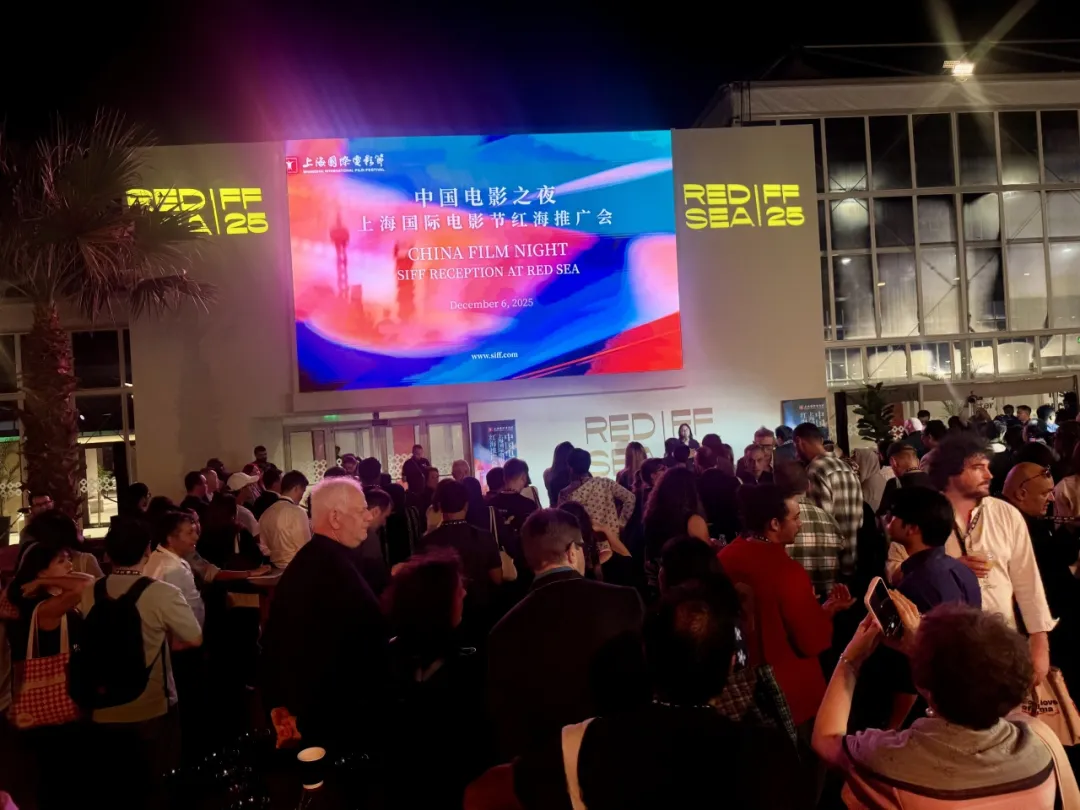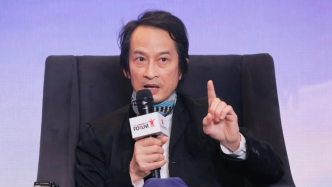
The awards of the 26th Shanghai International Film Festival have been decided. However, the value of a film festival is not only about the awards. Watching works that you can't usually see in the cinema, or listening to rare filmmakers share their creative insights, are all irreplaceable and unique experiences of the film festival.
Speaking of the latter, this year many foreign filmmakers who served as judges or guests held master classes at the Golden Goblet Film Forum, teaching many young people who are interested in creating films. Among them was the chairman of the Golden Goblet Award Jury, French-Vietnamese director Tran Anh Hung.
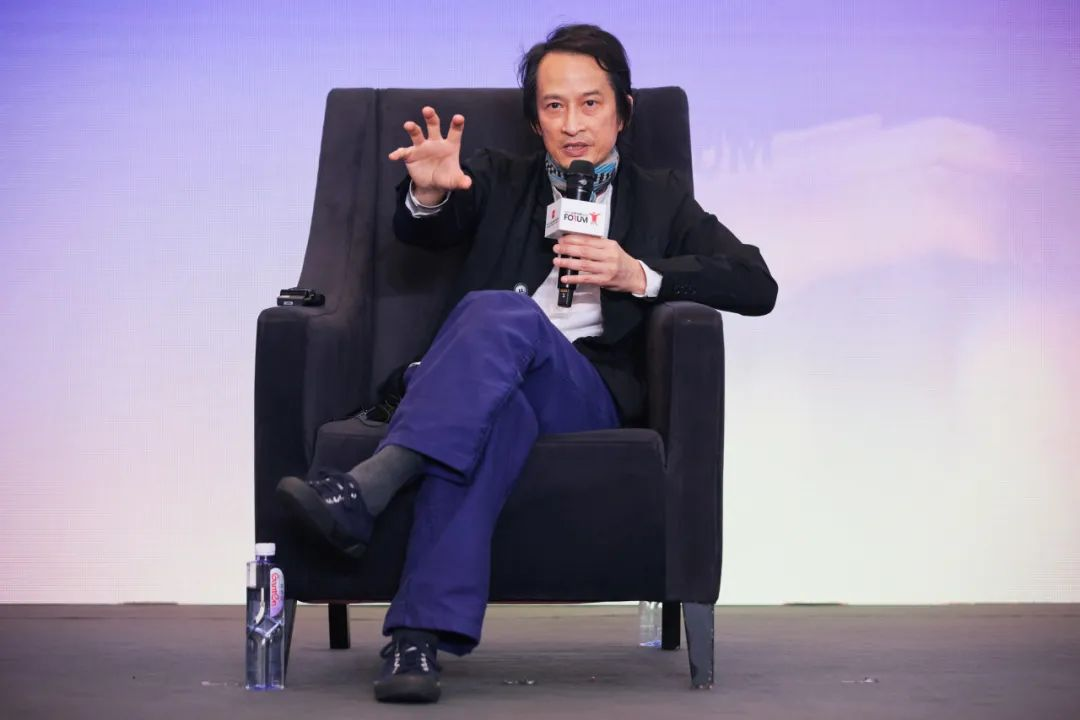
Chen Yingxiong held a master class at the Golden Goblet Film Forum
Tran Anh Hung, 61, was born in Da Nang, Vietnam, and settled in Paris, France with his family when he was 14. In 1993, his debut feature film, The Taste of Green Papaya, became a blockbuster, winning the Cannes Golden Camera Award, the César Award for Best First Feature Film, and other awards, and was nominated for the Academy Award for Best Foreign Language Film on behalf of France. His second feature film, Rickshaw Driver, won the Golden Lion Award, the highest honor at the Venice Film Festival. After that, he successively adapted the famous works of Japanese writer Haruki Murakami, Norwegian Wood, and French writer Alice Ferney's Love Is Forever, and his latest work, Fondue Française, also won the Best Director Award at last year's Cannes Film Festival.
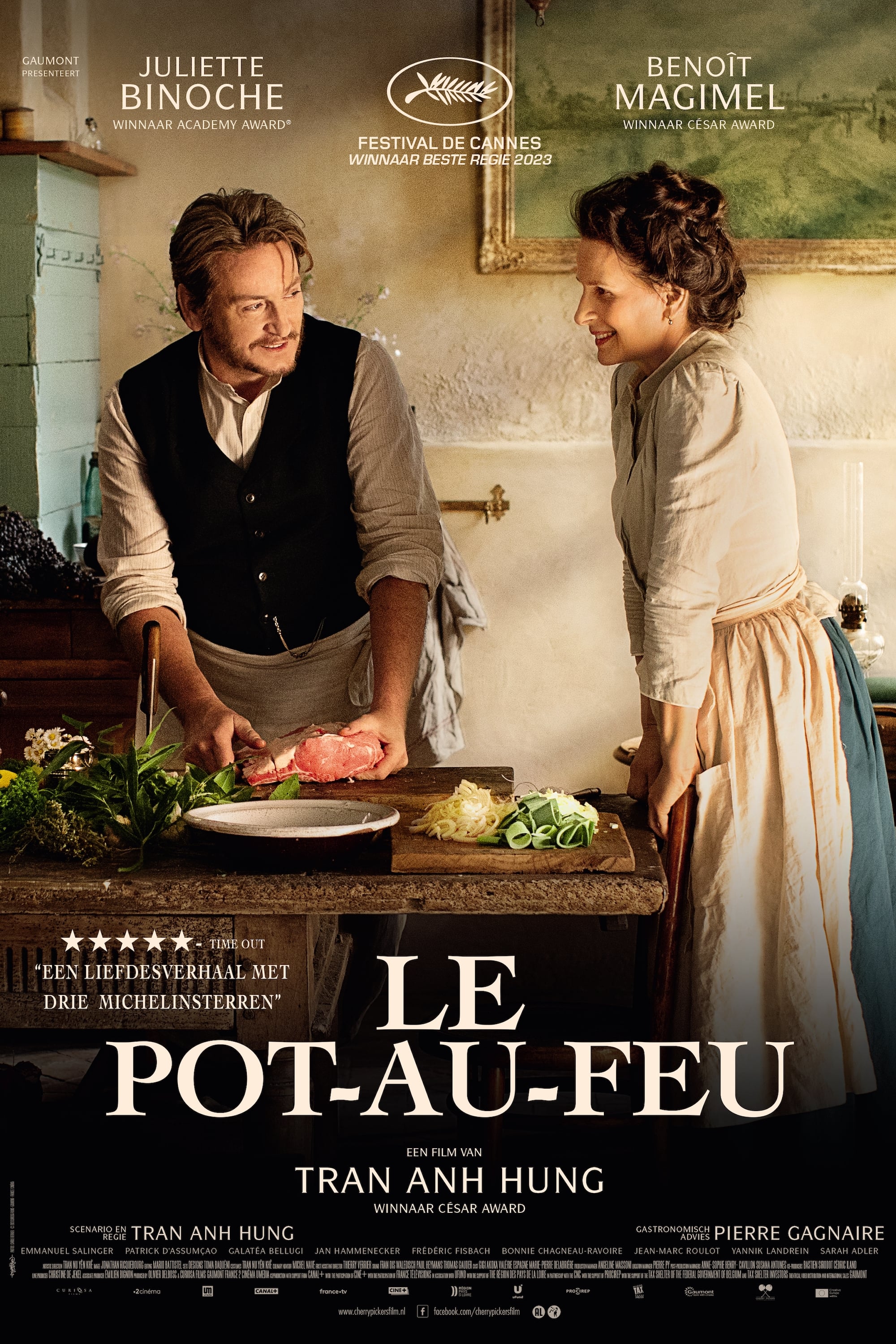
Poster of "French Fondue"
In the master class held on June 22, the gentle-looking Chen Yingxiong showed a somewhat unexpectedly straightforward character. He opened by saying: "I know there are some young people who want to be directors in the audience today, so I want to say something useful to help you make better movies in the future. Film is a language, which means it can be learned. No matter where you are from, you use the same language when you make a movie. I often hear people say that film is a collision between art forms such as painting, drama, literature, and music, but I cannot agree with this statement. Film is a unique art form. I hope that after this one and a half hour master class, when you walk out of the door, you will feel that you know how to make a movie better."
Later, when the host mentioned that Chen Yingxiong had brought "Norwegian Wood" to the Shanghai International Film Festival 13 years ago and was going to ask him about his feelings about coming to Shanghai twice, Chen Yingxiong interrupted her question: "Sorry, I have to interrupt. In my opinion, these topics are meaningless. We must use the limited time now to really talk about movies. My personal experience is worthless. Please let me talk directly about how to understand movies. I hope that what I say here today can bring inspiration. This is the value of the master class." Chen Yingxiong's blunt remarks won applause from the audience, and he opened the chatterbox and couldn't stop.
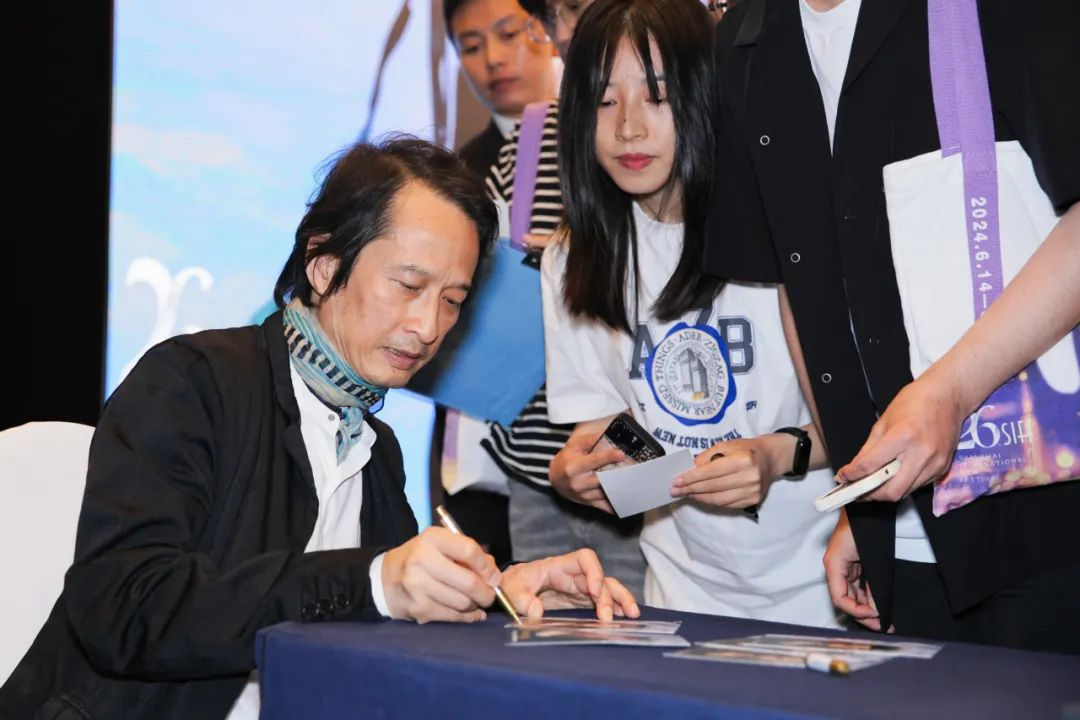
Chen Yingxiong signs autographs for fans
The essence of a movie is the switching between images.
As soon as Chen Yingxiong started, he generously shared with the audience his own methods of improving the understanding of movies. "A movie director is completely different from... for example, a violinist. He doesn't have an instrument and can't improve his skills through daily practice. I want to share a method of my own here. If you stick to this method for two years, I believe your understanding of movies will have a qualitative leap. I always carry an envelope with several pieces of paper and a short pencil. Every time I finish watching a movie, I find a place to sit down and write down on the pieces of paper what I can learn from the movie just now and what I think is not good enough - don't use a notebook, just use pieces of paper, because you have to express your feelings in the most concise language in a limited space. Then, I will throw the piece of paper away. You must have confidence in yourself and believe that what you have gained from the movie has been engraved in your mind. This is a daily training and a way to cultivate your sensitivity."
"Another suggestion is that if you like a movie very much, you might as well watch it several times, and then go over it in your mind again, the more details the better. After that, you can cut off the sound and watch it once; then cut off the picture and listen to it again. Especially for some classics in film history, everyone uses this method to practice, I believe it will enrich your sensitivity. This sensitivity will gradually turn into a sixth sense, which will benefit you a lot on the set in the future, and can help you judge which filming content is worth keeping in a very short time. Truffaut once said that filming is 10% inspiration and 90% sweat. When and what kind of picture should appear often depends on the director's careful calculation. And this ability is based on the accumulation of film literacy trained in daily life."
So, what exactly is a movie in Chen Yingxiong's opinion? He said, "I think movies are a cross-level art form based on storytelling. Movies should be able to evoke emotional resonance, but resonance alone is not enough. For example, if you film a couple who lost their child, the audience will feel sad no matter how you present it. However, through some exploration of form and style, you can create works that evoke deeper emotions, and this is the value of the art of film."
He went on to say, "The essence of film is actually the switching between pictures. What a director should pay most attention to is not the theme, not the script, not the actors, but how to connect the previous picture with the next one. There are only two ways: to connect the pictures through contrast and to make a smooth transition. For example, your father passed away. This is just a fact in itself. Only through the careful design of the picture switching can it be given emotional meaning. So, life is experience, and art is expression. When you are making a movie, you don’t have to imitate experience, but to express experience in the language of film."
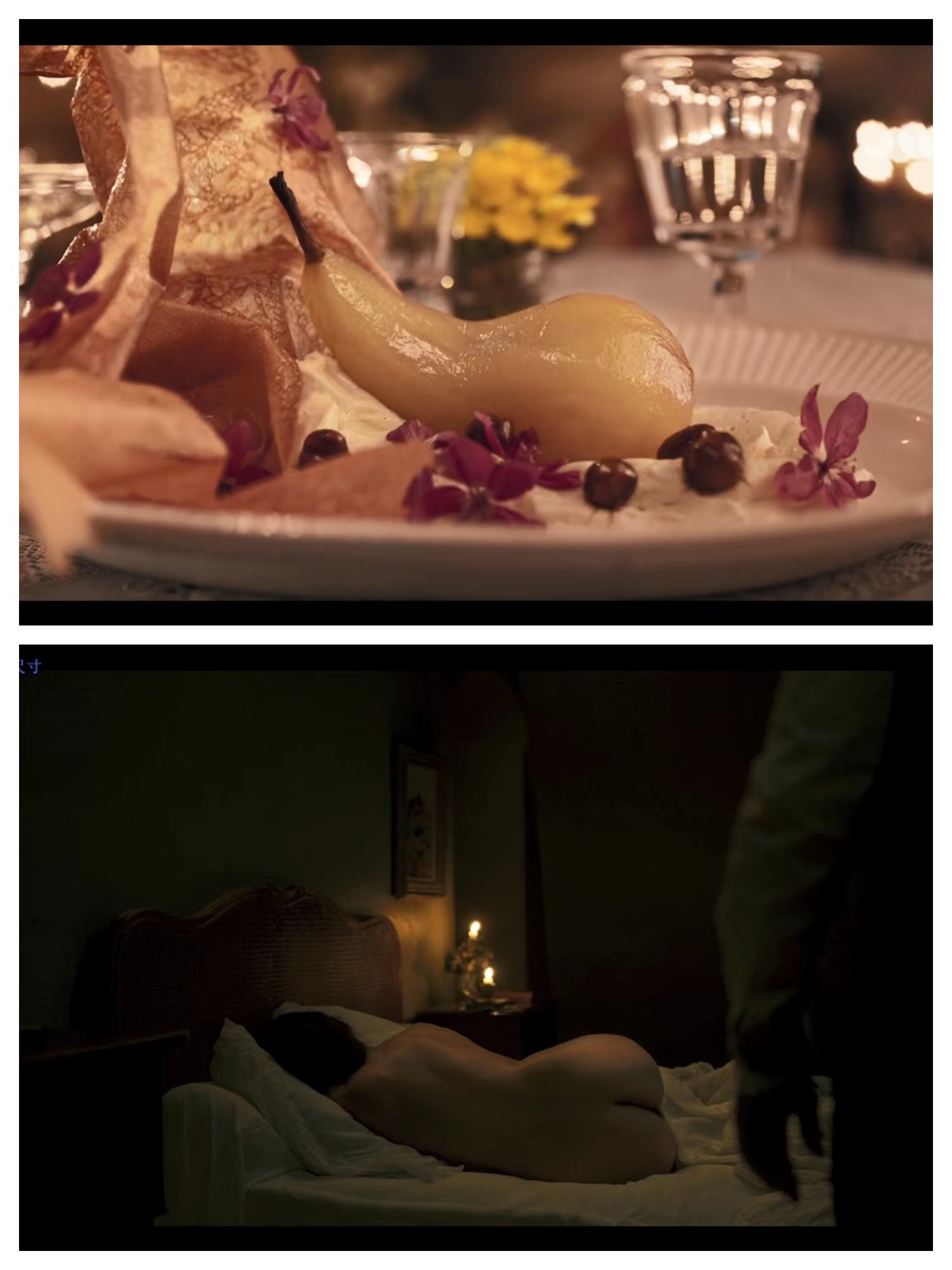
This transition scene in "French Hot Pot" is praised by people
"Specifically, the contrast method means that if the previous picture is a panoramic view, then the next picture will be a close-up; or if the previous picture is very quiet, then the next picture will be very noisy; or if the previous picture is in cold tones, then the next picture will turn into warm tones, and so on. Only with contrast can there be dramatic conflict. And when you want the audience to maintain a certain emotion, you can use a smooth transition between pictures. There are both contrasting and smooth transitions between pictures, so that the image has fluidity." Chen Yingxiong added, "I am not saying that the content itself is not important, but I want to tell everyone how to present the content better."
"Let's talk about the script. As a director, I don't need a very complicated story with three or four twists and turns. I advocate simple stories, and the important thing is the hidden structure contained in them. Only when the structure transcends the content itself can it stimulate multiple sensory experiences. For example, in my latest work "French Hot Pot", there is a plot in the middle where the hero and heroine discover a little girl who is very talented in cooking, so they discuss whether to hire her to inherit their cooking skills. After that, the little girl has not appeared in the movie until the heroine dies, and then she reappears. The implicit meaning here is that the heroine who left due to illness finally left a child for the hero to help him overcome his grief. Although they are not family members, the audience can feel the family relationship formed between the three of them."
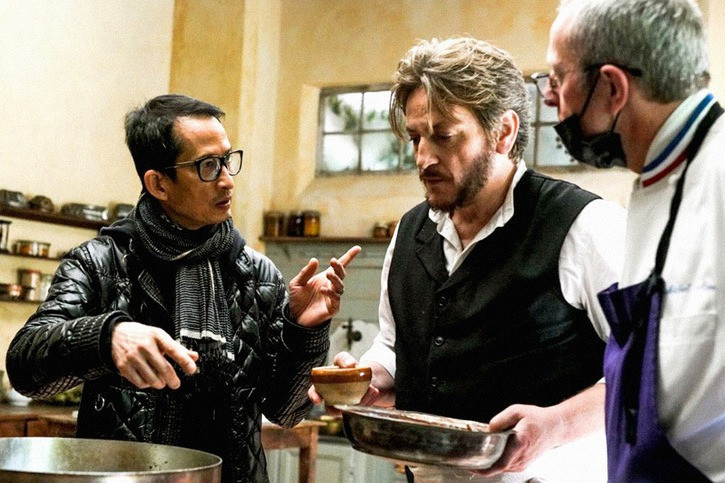
Chen Yingxiong on the set of "French Hot Pot"
As for how to choose the theme of the work, Chen Yingxiong said frankly: "I think the current film industry places too much emphasis on the theme, but in fact many themes that conform to the spirit of the times are poorly presented. As a director, I don't care what the audience wants to see or what they love to see. Instead, I feel that I should give the audience a gift, a gift that exceeds their expectations, awakens their dormant emotions, and makes them feel that it is worth spending money to buy a ticket to watch the movie. It's like the money we spend on buying a 19th-century classic in a bookstore is ridiculously insignificant compared to its value. I think the same should be true for the movies I make."
Some people may find my work soporific, but that doesn't matter to me.
As for what kind of film is considered a good work, Chen Yingxiong said: "I think that musical films are better than other films. The musicality here does not refer to the use of music, but to the rhythm of the work itself. For example, in "Fondue", there is no music because I think the film itself has enough fluidity. As for the music, I personally think it should only be used when the emotions are well expressed. The music should be able to bring additional emotional value to the specific scene."
Whether it is his many collaborations with his wife Chen Yanxi, Tony Leung in "The Rickshaw Man", Audrey Tautou in "Love Is Forever", or Juliette Binoche and Benoit Magimel in "Fondue", Chen Yingxiong often gives people the impression that he is very good at choosing actors, but he does not think that he is the kind of director who can train actors.
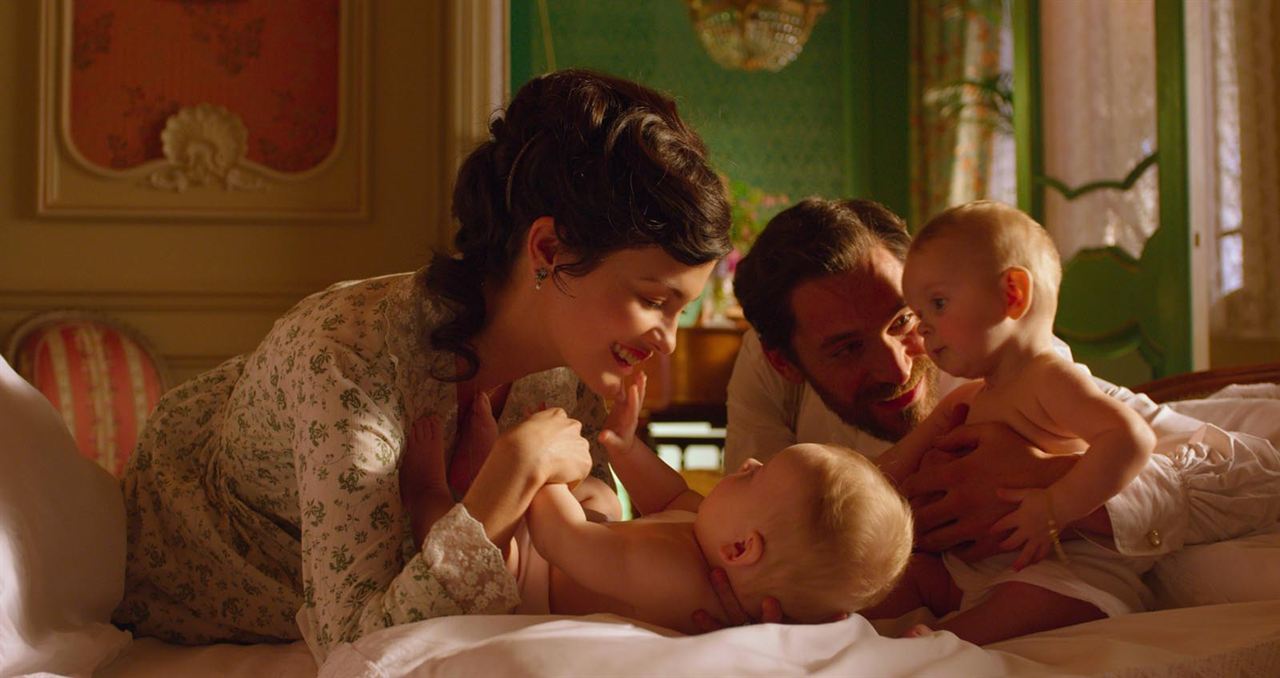
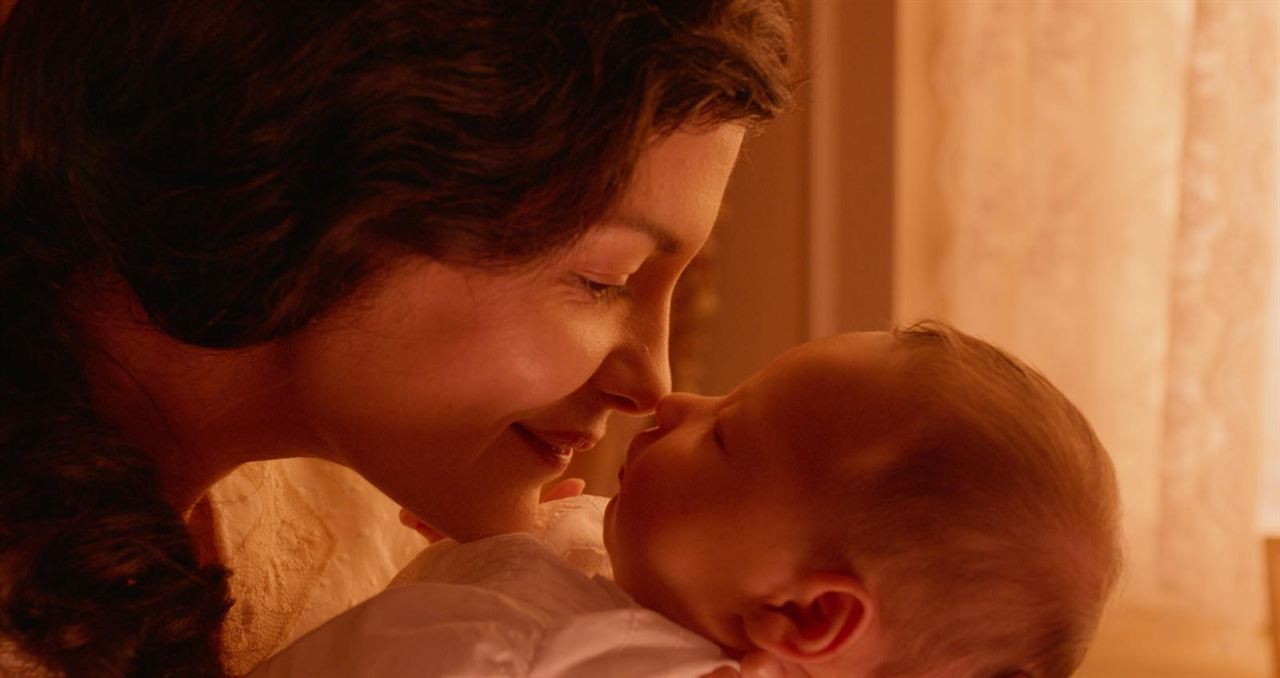
Stills from Love Is Forever
"I don't ask actors to act out their true state, but focus on capturing their expressiveness. For example, when I was working with Audrey Tautou on Love Is Forever, there was a scene where she said she wanted to play freely. I said no problem, and then I turned on the camera. As she was acting, I shouted 'Cut'. She said, oh, I haven't finished yet. I had to say, 'Okay, let's turn the camera on again'. She said, 'Don't treat me like a fool, since this one has been passed, let's pass it.' Indeed, for me, the expressiveness of that scene showed the fluidity of emotions, which is enough."
As for his personal style, Chen Yingxiong said, "I hope the film can keep a slow pace as much as possible, so that the details it presents can be better conveyed to the audience and they can feel the beauty of every moment in the film. Some people may find such works drowsy, but it doesn't matter to me. This is how I observe the world."
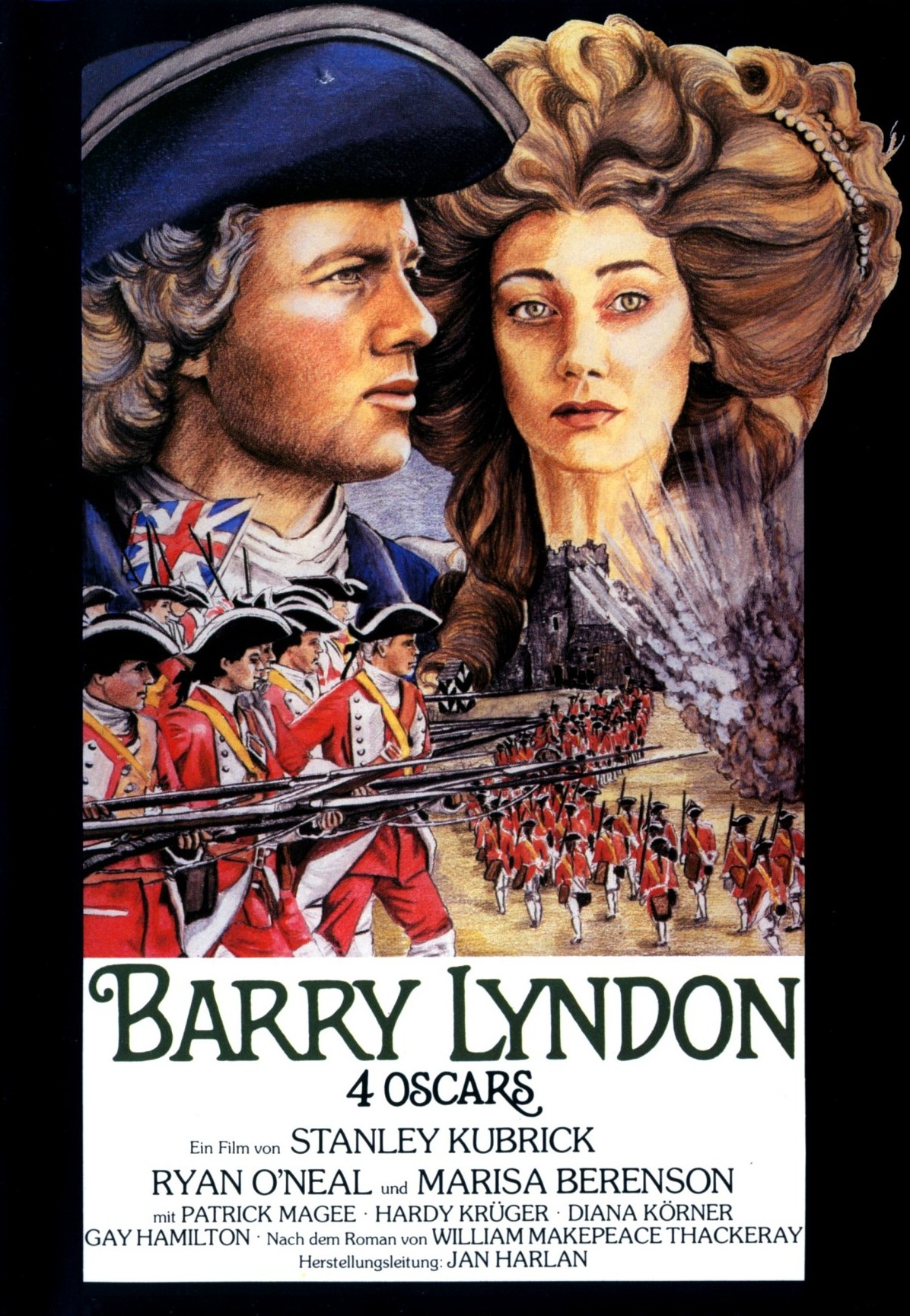
Barry Lyndon poster
When talking about his favorite filmmakers and works, Chen Yingxiong's emotions immediately became high. "I like Martin Scorsese's works very much. He can create a very exciting rhythm." He also praised Kubrick's "Barry Lyndon", thinking that the sad tone expressed by the film's musicality is irresistible. However, when it comes to the most appreciated film, it has to be Terrence Malick's "The New World". "I started crying about 45 minutes into the film, thinking, 'Damn it! How can I achieve this kind of irresistible resonance?!' This is the natural effect of the film's musicality, and it is also the most difficult highest realm for a director to reach. Even Terrence Malick, who has created a unique style, has not been able to reach such a height in his previous and subsequent works."
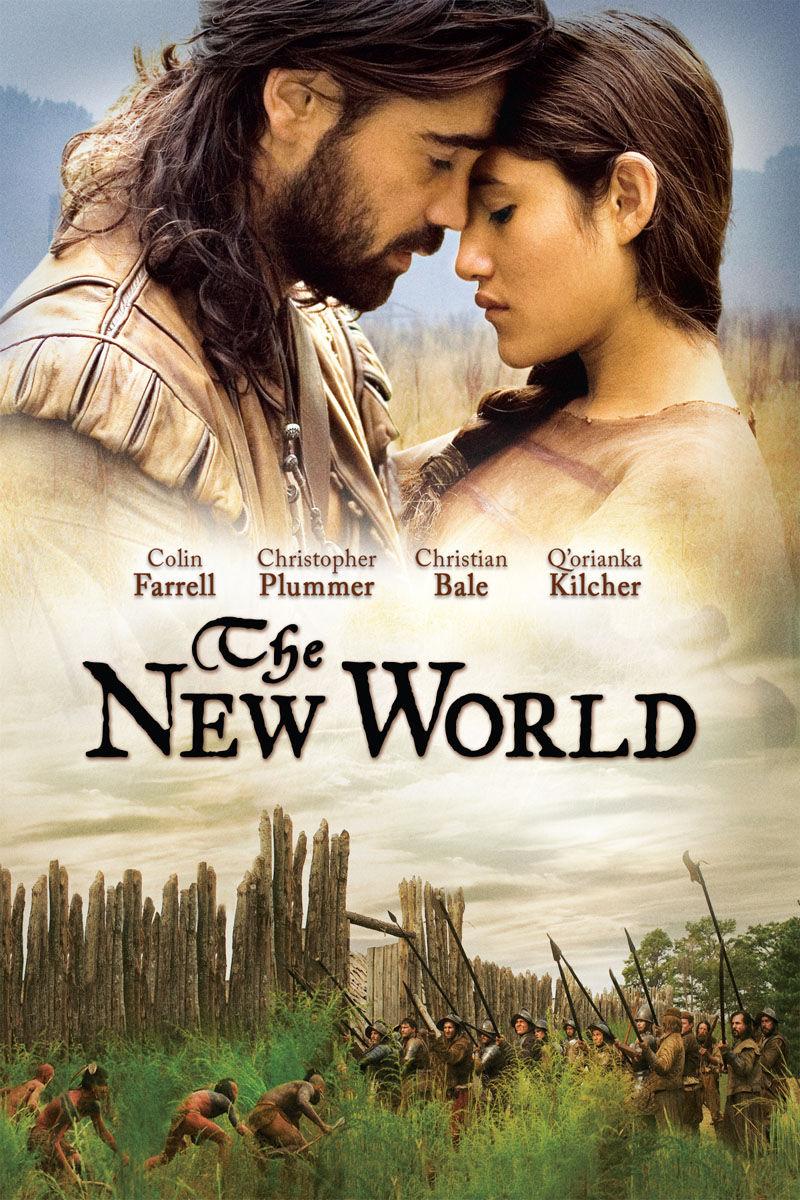
New World poster
In his more than 30-year career as a director, Chen Yingxiong has completed a total of seven feature films so far. In terms of quantity, he is no less frugal than Terrence Malick. In this regard, he said, "I also want to complete a project in one or two years, but due to the reality of investment costs, it may take five years to complete a film. Although I would like to answer vainly that I prefer challenging themes, many times it is actually others who choose me."
Regarding his next film, Chen Yingxiong revealed that he would return to Vietnam to shoot, and the story is "about the year when Buddha gained enlightenment in his life." He explained, "The spirit of Buddhism has continued for 25 centuries, and a large number of people have gained spiritual comfort from it. I hope that this film can explore the understanding of this spirit with the audience."
